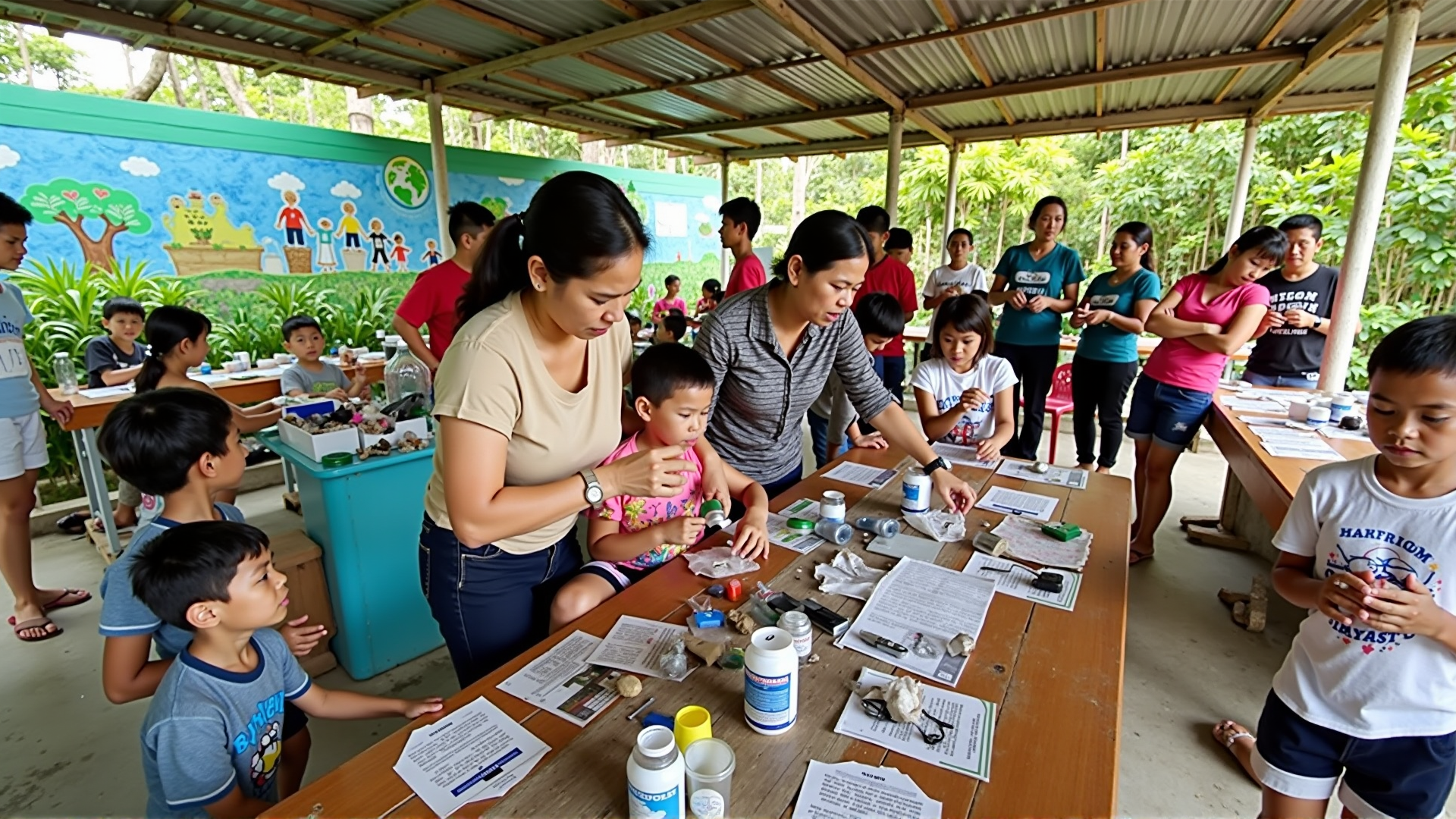In the heart of the Philippines, a remarkable transformation is underway. Local communities are spearheading innovative recycling initiatives, turning what was once considered waste into valuable resources. This movement not only addresses environmental concerns but also fosters a culture of sustainability and creativity.
The lush archipelago, known for its rich biodiversity, faces significant environmental challenges. The rapid increase in discarded materials has necessitated novel approaches to manage these issues effectively. Communities across the nation are rising to the challenge by designing and implementing unique recycling techniques that not only conserve resources but also promote environmental protection.
One such initiative is the use of eco-bricks. These are made by tightly packing plastic waste into bottles, creating durable building materials. This simple yet effective method not only reduces the volume of non-biodegradable materials in landfills but also provides a low-cost construction solution for local infrastructure projects. Schools, community centers, and even small homes have benefited from this alternative building material, showcasing the creativity and resourcefulness of their creators.
Another groundbreaking approach can be observed in coastal communities, which have developed systems for turning ocean waste into useful products. Artisans collect discarded nets and plastics from the beaches, transforming them into intricate crafts, jewelry, and home decor items. These products are not only popular among locals but have also drawn attention from tourists seeking sustainable souvenirs. This initiative helps clean up the shores while simultaneously supporting local artisans.
In urban areas, innovative recycling centers are taking shape. These centers offer drop-off points for various materials such as old electronics, textiles, and paper. The collected materials are then either repurposed or broken down for use in new products. This system not only diverts significant amounts of debris from landfills but also creates opportunities for the development of new skills and employment in the recycling sector.
These strategies are supported by educational programs aimed at increasing community awareness and participation. Through workshops and outreach efforts, individuals are equipped with the knowledge and skills needed to contribute effectively to these recycling endeavors. Children and adults alike are encouraged to see waste as a resource, fostering a shift in mindset that emphasizes long-term environmental stewardship.
The communities drive this movement with their vision and ingenuity. By transforming challenges into opportunities, they inspire others to adopt sustainable practices. Their work demonstrates that with creativity and collaboration, it is possible to create a healthier environment and a more sustainable future. As these efforts continue to grow and evolve, they set a powerful example for the rest of the world.
